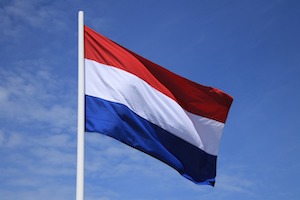The chair of the Dutch gambling regulator says he was able to “tick many boxes on my wish list” after the recent promise of a new Netherlands gambling bill.

State secretary for legal protection Teun Struycken revealed last week that he will present a reworked bill by the end of this year as the country looks to better improve gambling regulation.
The proposal includes giving more powers to the regulator, Kansspelautoriteit (KSA), including the ability to block illegal websites.
The KSA will also be able to “more rigorously” monitor the legal market, the government said in its announcement.
KSA chair Michel Groothuizen said he was pleased with Struycken’s announcement in “many ways.”
“It fills us with satisfaction that many topics that are high on our agenda are also on the State Secretary's list of priorities,” he said.
“His letter also covered many topics that we had requested in previous letters to the department: the possibility of using fake IDs to optimise our supervision, simplifying involuntary registrations in the Cruks [self-exclusion] register (which we have recently been communicating as the ‘gambling stop’ for the sake of clarity) and the broader use of data from gambling providers for research purposes. I was able to tick many boxes on my wish list.”
Groothuizen also commended Struycken for his proposal to raise the minimum age for online slots from 18 to 21, adding it sends a “strong signal” to young people.
Comparing the proposed new slots age limit with the uplift in the minimum age uplift for buying alcohol in the Netherlands from 16 to 18, he noted that since the change with alcohol regulations, “the number of under-18s who start drinking alcohol has also decreased considerably.”
But he said there is an “important difference” between the “barriers” involved with underage alcohol consumption and underage gambling.
He said that while young people have to have alcohol purchased for them or risk entering a bar, “there is no beckoning, inviting, attractive illegal alternative within reach” for gambling.
He also admitted that slots would still be available to people under 21 “with a few mouse clicks.”
Diving deeper into the illegal market, Groothuizen said new reflections on channelisation data have come as a “shock” for the KSA.
“In the context of the newly introduced policy rules of the KSA and the ministry last summer, we investigated how the channelling is going. Would tightening the reins lead to players leaving the legal market?
“Fortunately, that does not seem to be the case for the time being: the channelling in terms of players is still high (91% still only play legally). However, there was a raw edge to that conclusion: we also calculated the channelling based on the gross gaming result, BSR (how much money disappears to illegal parties).
“To make that calculation, we used a new, better method, provided by the Dutch Lottery. We are grateful to the NLO for that, even though these calculations showed that the channelling based on BSR has not only been lower than we thought for years (namely approximately 60% instead of over 80%), but also that it has fallen by another 10% since the introduction of the policy rules last October, to 50%.
“That was a bit of a shock for us too.”
Groothuizen said Struycken’s idea of an overarching deposit limit with a financial capacity test is a “nice and appropriate step in further preventing gambling damage.”
“But then we must ensure that this is given the simplest possible form to prevent impracticability or at least major administrative burdens on the side of providers (and also on ours as supervisor),” he added.
“Moreover, the height of such a limit is of great importance: we see that the provider limits that we currently use (€300 and €700 per month) are quite effective, ensure that the vast majority of players actually colour neatly within the lines and, moreover, do not yet influence the channelling based on players.”

